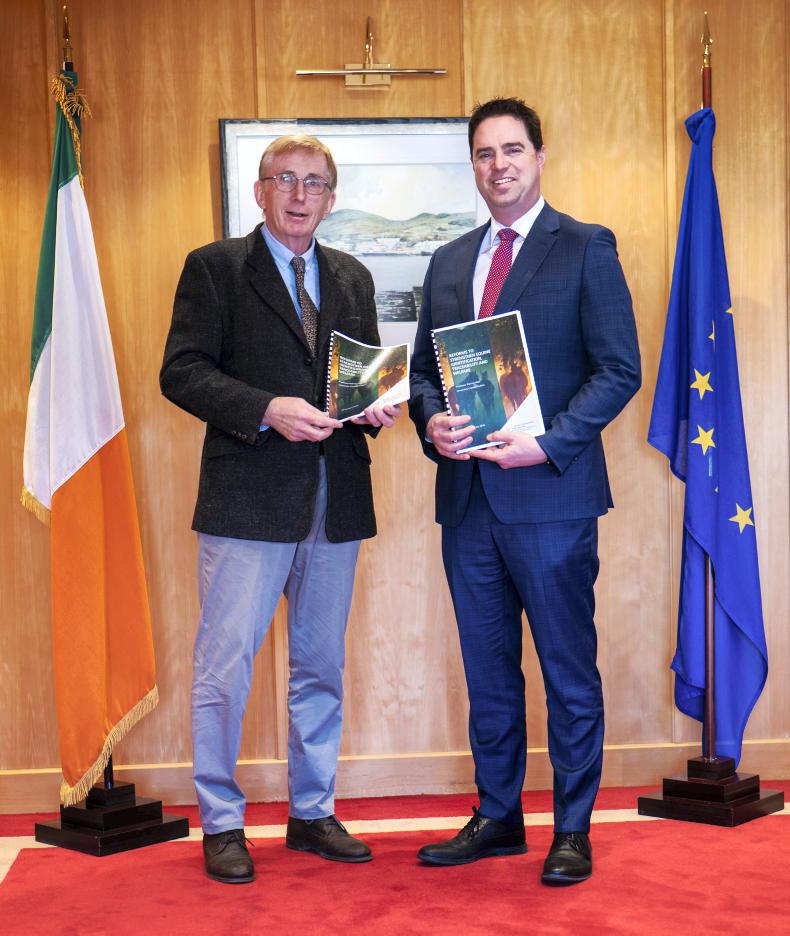THE Minister for Agriculture says he is backing the recommendations made by Prof Paddy Wall this week in his report on Ireland’s equine traceability system, and he has called on the equine sector to “commit to real, measurable change if it is going to ensure it is associated in the minds of Irish citizens with feats of speed, skill and athleticism rather than acts of cruelty and carelessness when those animals on whom the sector is built outlive their usefulness.”
Prof Wall, a veterinarian, a medical doctor, knowledgeable in the equine sector and a food safety expert, was commissioned by the Department of Agriculture to carry out a root-and-branch review of Ireland’s equine traceability system in the wake of the RTÉ Investigates programme broadcast last summer.
That programme highlighted legal loopholes and lack of enforcement of regulations which allowed riding horses to be exported from Ireland with falsified passports, compromising food safety.
The broadcast also included shocking scenes filmed inside Ireland’s only horse abattoir in Straffan, Co Kildare.
The abattoir was swiftly shut down by the Department and the then Minister for Agriculture Charlie McConalogue said: “My department has already commenced an investigation into these matters with the support of An Garda Síochána and the full force of the law will be brought to bear to ensure that there are appropriate consequences for those responsible.”
Export for slaughter
Approximately 2,000 horses per year were slaughtered at the Straffan abattoir. There is currently no such facility operating in Ireland and it is believed that, as a result, a growing number of unwanted horses are being collected around Ireland by dealers and taken to Britain and the continent for slaughter.
According to the Department, the number of horses slaughtered at the Straffan plant in the first six months of 2024 was 919 of which 641 were notified as thoroughbreds.
Prof Wall’s report recommends that the Department supports the opening of a properly-run horse abattoir for horses who are eligible for the food chain. He says: “While some may argue that slaughter does not prioritise the horse’s welfare, it can prevent situations where low-value horses are neglected, left to become emaciated, or endure prolonged suffering due to a lack of proper care.”
He continued: “Banning horse slaughter in Ireland, or continuing without a functioning abattoir, may seem like an ethical stance, but it has practical and welfare consequences.
“Horses that leave the country for slaughter are beyond Irish oversight, and there is no guarantee that they will be treated humanely or handled appropriately. In addition there are increased welfare risks associated with longer transport routes.
“Additionally, low-value horses may be exported under the guise of being for ‘leisure use’, only to be mistreated or slaughtered elsewhere, possibly in facilities with suboptimal welfare standards. This creates significant risks for both animal welfare and the integrity of the equine industry.
“An Irish owner may unexpectedly find themselves at the centre of media attention and associated adverse publicity if a horse registered in their name appears in Ireland, or another jurisdiction, in an emaciated or neglected state, or is illegally presented for slaughter.
“By putting a properly-run equine slaughter facility in place in Ireland, where horses can be humanely handled and processed, we can retain control over end-of-life care and ensure higher welfare standards for those horses that are not suitable for retraining or alternative use.”
Prof Wall proposes close to 30 recommendations in his report and, also this week, the Department published an action plan detailing 38 actions it proposes to undertake in 2025 and 2026 with the aim of strengthening equine identification, traceability and welfare.
KEY POINTS IN PROF PADDY WALL’S REPORT
1. Strengthening the central equine database
2. Mandatory ownership change reporting
3. Strengthening oversight of horse exports
4. Timely recording of horse deaths
5. Establishing a properly regulated horse slaughter facility and providing grant aid if needed
6. Collaboration with Northern Ireland
7. Aligning EU equine databases
MORE ON PAGE 4
